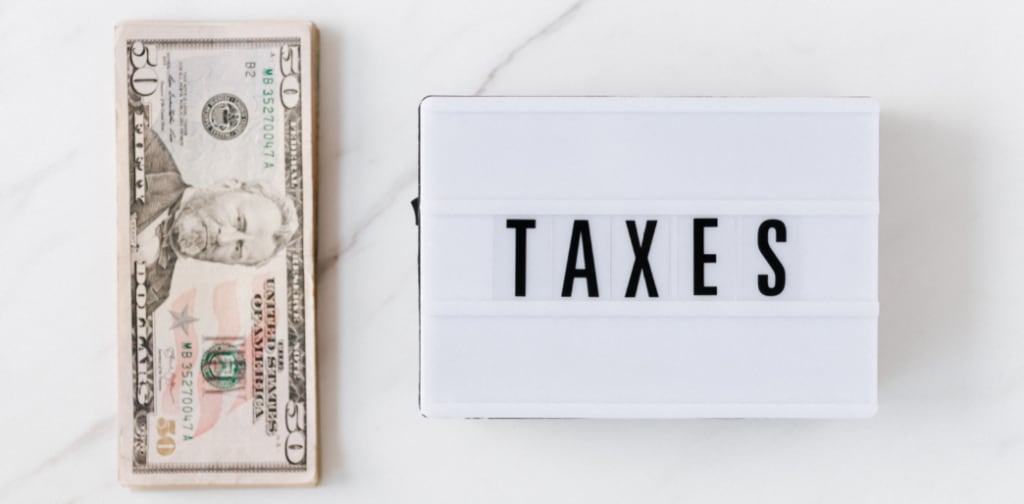
Amid a slow economy, especially during this COVID-19 period, many businesses may be experiencing a cash crunch. For this reason, it won't be surprising that some companies might be finding it hard to pay their taxes to the Internal Revenue Service (IRS) coffer. Thus, for such a firm, the tax debt and burden keep rising.
If as a taxpayer you are going through a dearth of capital, thereby making you unable or extremely difficult to meet up with your tax payment, well, there may be a chance of tax relief for you. Remember, when they say the tax is inevitable? Yes, that's still true. But you could have some breaks on tax payments if you understand how to go about it. Rather than pilling up tax debt, quickly read this post, and get yourself acquainted as we explain the Currently Not Collectible Status for those who owe IRS.
Understanding Currently Not Collectible” Status
Collection Not Collectible Status is a kind of status that is given or inferred on individuals or taxpayers who have been satisfactorily assessed and considered to be unable to pay back the debt incurred. Thus, to relieve such individuals the burden of tax payments, and the IRS would then decide to put a stop albeit, temporarily, on their usual operations of seeking to get paid for the taxes.
According to the IRS documents, the IRS has the total power to conclude that some specific accounts or individuals are CNC. To reach that conclusion, however, the IRS must have examined and evaluated the cost of a possibility of receiving the tax payments eventually from the taxpayer involved against the costs of letting him or her free from the obligations temporarily.
Note that the decision to confer individuals the status of CNC by the IRS is established on the IRS's practice founded on the standard of reasonable and impartial execution of tax laws accordingly. There are various reasons individuals or accounts may be considered CNC.
In many cases, the most common reasons tend to range from the inability of the IRS to locate the taxpayer or his assets, to reasons like the taxpayer's death without any form of tax payment potential from the decedent/decedent estate.
IRS has a separate handbook defining and explaining the codes and terminologies of CNC for individuals to understand or consult should there be a need to do so.
How To Know If You Are Eligible For Not Collectible Status
Now that you know that there is an opportunity to have some tax relief if you are owing IRS some tax payments and that truly you don't have the financial capacity to pay. Then the next question that may have come to your mind is how to know if you are truly eligible for Not Collectible Status?
Well, to know if you are eligible for CNC status, your financial standing will be measured using IRS preset standards of measurement. This implies that, as a taxpayer, you must show a specific level of financial hardship that makes it impossible to pay your taxes after paying for basic amenities.
Usually, the IRS measures your total positive income against your living expenditures. These living expenditures are further categorized into four types known as National Standards -- Food, Clothing, and Miscellaneous; National Standards -- Out-of-Pocket Healthcare Expenses; Local Standards -- Housing and Utilities Standards; and Local Standards—Transportation.
Subsequently, the IRS subtracts your living expenditures from your total positive income. Then, the remaining balance will now determine if you are eligible or not. Technically, you would be considered eligible if it is found that if after paying your tax debt from the remaining balance, you would be in a serious economic disadvantage situation, and not just a modest financial drawback.
What does IRS mean by Financial Hardship?
Generally, IRS defines the financial hardship that can make taxpayers eligible for CNC to be a financial situation whereby, individuals involved have "no income or assets, no equity in assets or insufficient income to make any payment without causing hardship." This implies that for a taxpayer to be granted the CNC Status, his financial situation would certainly need to be critical.
You may not want this situation for yourself. Surely, nobody will want that either. Thus, it should be considered as a last resort in getting tax relief. However, while considering getting yourself a CNC status, you may have come across the issue of Statute of Limitations, and then you begin to ask what does that mean?
Statute of Limitations, Any Effect?
Statute of Limitations in the context of CNC and tax payments is a legal term, that explained the timeframe within which an action or claim on the tax debts of taxpayers with CNC status may be conducted by the IRS. This implies that, while any taxpayer with CNC status will not be paying taxes, he is, however, accruing the penalties and interests on the amount of tax owed. These monetary penalties and interests would nonetheless be paid if and when such taxpayers no longer have the CNC status within 10 years.
However, should a taxpayer with CNC status remain in this status for 10 years or more, he would be absolved of any tax penalties and interest accumulated throughout the years, including the original tax owed.
Will IRS Know If A Tax Payer's Financial Situation Changes?
Another important question that usually pops up for taxpayers under CNC status is to know whether IRS will know if their financial situation improves. Well, in most cases, the answer is yes, IRS will know. This is because, on many occasions, IRS maintains close monitoring of taxpayers with CNC status, to ensure they don't cheat the system. In some situations, IRS may tag some taxpayers with a "mandatory follow-up" with an adequate system in place to check if and when these taxpayers' financial situations change for the better. Hence, the answer is yes.
Typically, when IRS discovers an improved financial status of the aforementioned taxpayers, their next step of action is to revoke their CNC status, thereby making them pay the original tax owed including penalties and accrued interests.
IRS generally, monitors the financial situations of taxpayers under CNC status by periodically asking for their financial information.
How Can I Apply for IRS Non-Collectible Status
If after reading this post, you realized that you need to apply for IRS Non-Collectible Status, then quickly read further.
Usually, to get a CNC status as a taxpayer, you would need to tender your financial situation to IRS. Presenting your financial status to IRS would require you to provide some vital information and documents, including your tax returns for the earlier years. Your application document shall include the following:
· All income and living expenses
· All assets and their market values
· Bank statements from the last three months
· Proof of any out-of-pocket medical expenses
· Form 433: this will give IRS an insight into your finances.
To fill your Form 433 accurately, you are expected to do the following:
· List of all tangible and intangible assets you have
· Specify a market value for all assets
· Measure your income in the last three months
· Calculate your expenditure in the past three months
· Estimate the difference between your three-month Income versus Expenditure analysis
Sources - Become Debt Free





Comments
There are no comments for this story
Be the first to respond and start the conversation.